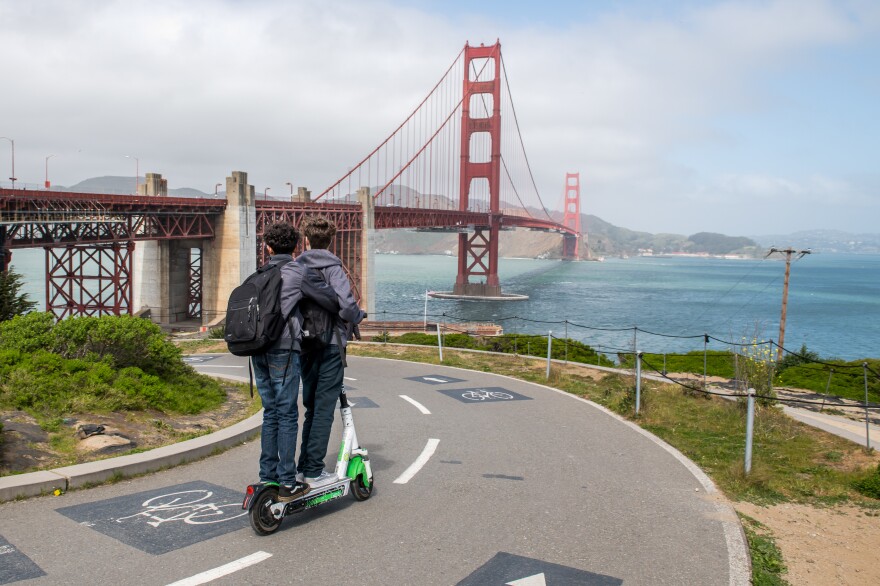As Americans shift their lives indoors and away from large public gatherings, people across the U.S. are grappling with basic questions about life, work and social distancing in the age of COVID-19.
Schools have shut down or pivoted to online learning, restaurants have halted dine-in services, and businesses across the nation have altered their work hours or shuttered completely. NPR checked in this week, with residents of three U.S. cities that have been among the first to face high numbers of cases and restrictions related to the outbreak.
In places that rely heavily on tourism, like New York City, the steady stream of visitors has slowed or even ground to a halt. Nurettin Kirbiyik, one of the few horse-drawn carriage drivers on the street on Tuesday, says he's lucky if he gets one paying customer.
"Over the last couple days, cabs didn't get any rides," he says.
Loading...
Maximo Valdez has been running a tire shop in Denver, Colo., for the past 20 years.
"Rent won't stop. Bills won't stop. If I pull money out of my savings — two months or three months at most and we go out of business," he says. "I don't have the heart to tell my workers that there's no work and 'Find something else.' They've been with me for six years."
Ten minutes down the road at a garden center, however, manager Trela Phelps says sales have been steady, as more customers have been stocking up on flowers to beautify their indoor spaces. "If they're going to stay home, they want it to look nice and they want to feel good about it," she says.
In Washington State, where the outbreak has more than 1,000 confirmed cases, Seattle is quieter than usual. Danny Hanlon, co-owner of a coffee shop in the Capitol Hill neighborhood, says it's difficult to anticipate changes from one week to the next, but he's still serving customers takeout coffee — one small piece of normalcy in an uncertain time.
"Even if this experience is not normal, it's normal that you come in, [and] I say, 'How are you doing?' and make a coffee for you. And then you say, 'See you tomorrow.' "
Those interactions, he says — people find them comforting.
From Seattle to Denver to New York City, here are some of those voices of people adapting to this new time amid the coronavirus outbreak.





Loading...

Loading...

Loading...

Photographers in Seattle, in New York City and in Denver contributed reporting to this story.
Copyright 2020 NPR. To see more, visit https://www.npr.org.


